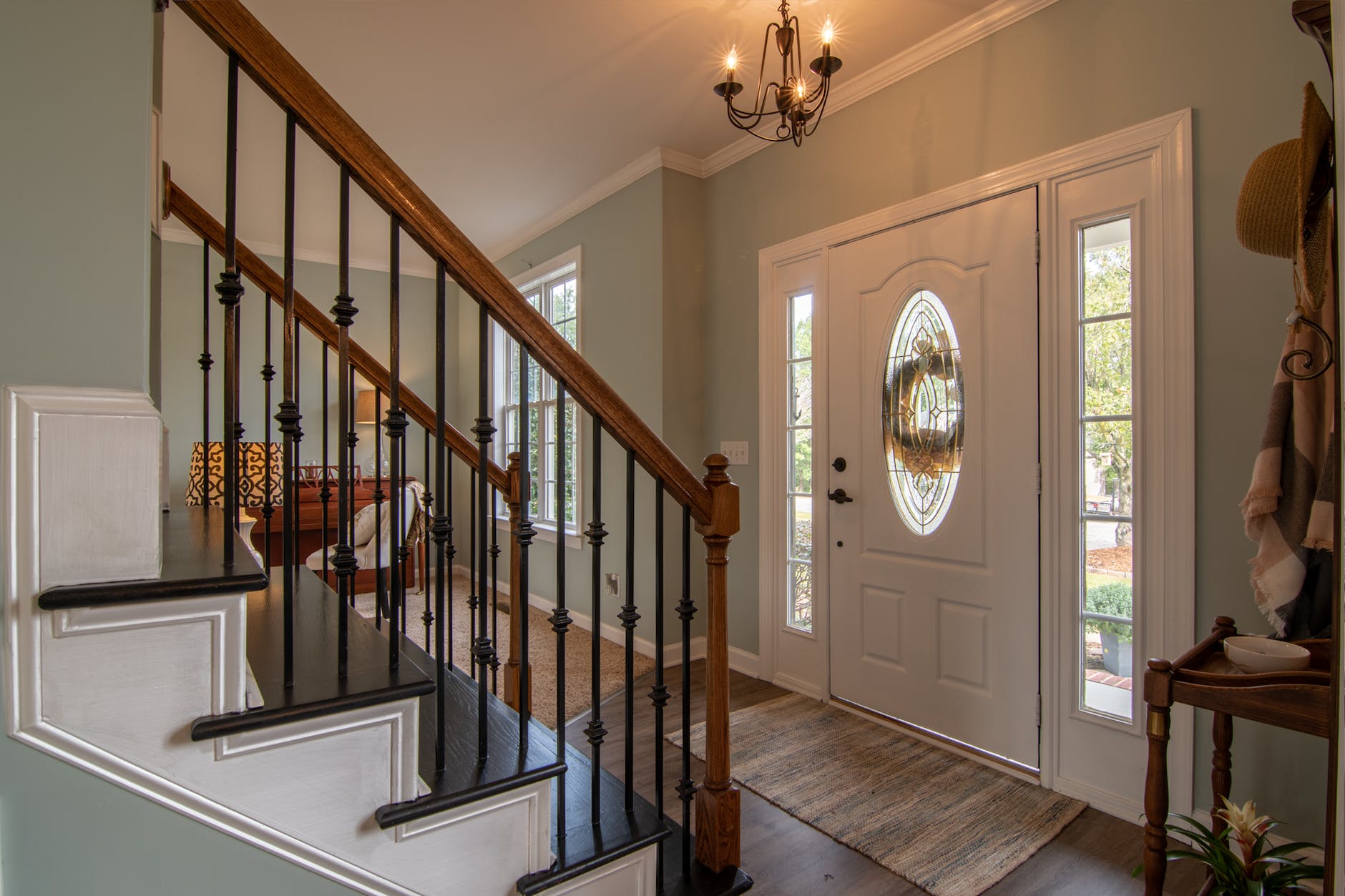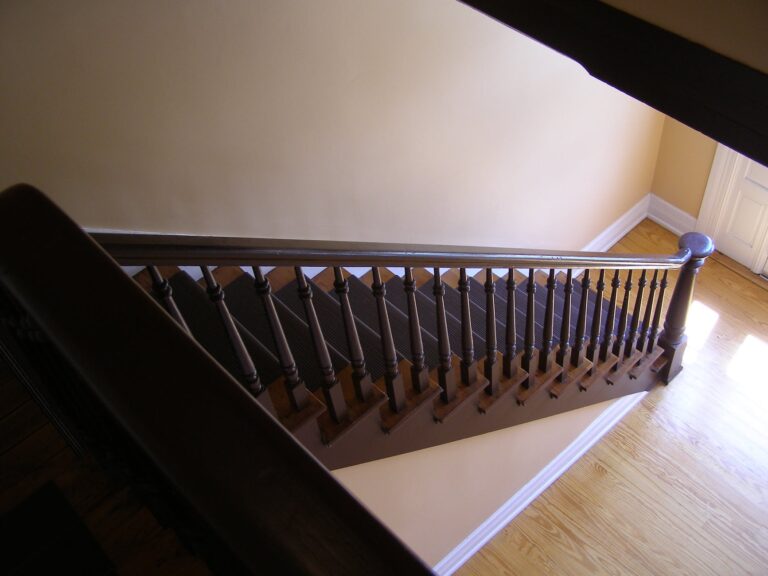Living in an apartment or a multi-story building has its advantages, but it also comes with a few challenges. One of the most common issues faced by people in such settings is the noise that comes from downstairs neighbors.
Whether it’s footsteps, loud music, or even conversations, the impact of noise can be quite significant. Not only does it disrupt your peace and quiet, but it can also affect your sleep, concentration, and overall well-being.
Noise pollution from downstairs neighbors can have a detrimental effect on your quality of life. It can lead to increased stress levels, anxiety, and even sleep disturbances. Constant exposure to unwanted noise can make it difficult to relax and unwind in the comfort of your own home.
Therefore, it is crucial to address this issue proactively and find ways to reduce the noise impact.
Common sources of noise from downstairs neighbors

Before diving into the solutions, it’s essential to understand the common sources of noise from downstairs neighbors. Identifying the root cause of the noise will help you address the issue more effectively.
Some of the most common sources of noise include footsteps, furniture moving, loud music or television, conversations, and even children playing.
By recognizing these sources, you can better communicate with your neighbors and find practical solutions to minimize the noise.
The importance of addressing noise issues
Living in a noisy environment can have a significant impact on your mental and physical health. It is essential to address noise issues promptly to create a peaceful living environment for yourself and your family.
Noise pollution can lead to sleep disturbances, increased stress levels, and reduced productivity. By taking proactive steps to address the noise from downstairs neighbors, you can improve your overall well-being and enhance the quality of your life.
Tips for addressing noise issues directly with your neighbors
Open and honest communication is often the best way to address noise issues with your downstairs neighbors. Before jumping to conclusions or becoming frustrated, take the time to have a polite conversation with them.
Explain how the noise is affecting you and ask if there is a way they can be mindful of the noise they generate. Most people are willing to make adjustments once they are aware of the impact their actions have on others.
By approaching the situation calmly and respectfully, you increase the chances of finding a mutually beneficial solution.
If talking to your neighbors doesn’t yield the desired results, consider putting your concerns in writing. A written complaint can help you express your concerns more clearly and provide a record of your attempts to address the issue.
Keep in mind that your neighbors may be unaware of the noise they are creating, and a written complaint can serve as a gentle reminder.
In some cases, you may need to involve the building management or homeowner’s association to mediate the situation.
They can help facilitate a conversation between you and your neighbors or enforce any noise regulations that may be in place.
Remember to remain calm and polite throughout the process, as an aggressive approach is unlikely to yield positive results.
Soundproofing options for reducing noise from downstairs neighbors
If addressing the issue directly doesn’t lead to a satisfactory resolution, it may be time to explore soundproofing options. Soundproofing can help reduce the impact of noise from downstairs neighbors and create a more peaceful living environment for you.
One effective soundproofing option is to install acoustic panels or soundproof curtains. These can help absorb and deflect sound waves, reducing the amount of noise that enters your living space.
Acoustic panels are typically made of materials that absorb sound, such as foam or fiberglass, and can be easily mounted on walls or ceilings. Soundproof curtains, on the other hand, are made of thick, dense fabric that helps block out noise.
Another option to consider is adding a layer of insulation to your floors. This can help reduce the transmission of sound from downstairs. Carpets, rugs, or even rubber underlayment can act as effective sound barriers and minimize the impact of noise.
Additionally, rearranging your furniture can help absorb and dampen sound waves, reducing the overall noise level in your living space.
DIY soundproofing techniques for reducing noise
If you prefer a more hands-on approach, there are several DIY soundproofing techniques you can try to reduce noise from downstairs neighbors. These techniques are cost-effective and can be easily implemented.
One simple DIY technique is sealing any gaps or cracks in your walls, floors, or windows. These gaps can allow sound to travel more easily, increasing the noise level in your living space. Use caulk or weatherstripping to seal these gaps and prevent sound leakage.
Another DIY option is to create a soundproofing barrier using materials like mass-loaded vinyl or acoustic foam.
These materials can be applied to walls or ceilings to reduce noise transmission. You can also construct a soundproofing panel using plywood and mass-loaded vinyl, which can be easily mounted on walls.
Is it normal to hear your downstairs neighbors?
It is common to hear some noise from downstairs neighbors in an apartment or multi-story building. However, excessive or disruptive noise is not normal and should be addressed.
While it’s unrealistic to expect complete silence, there should be a reasonable level of consideration and respect for each other’s living spaces.
If the noise becomes excessive or consistent, it is essential to take steps to address the issue and create a more peaceful living environment.
Read : What To Do If Landlord Won’t Do Anything About Noisy Neighbors
Additional tips for minimizing noise from downstairs neighbors
In addition to soundproofing techniques, there are several other tips you can follow to minimize the impact of noise from downstairs neighbors.
Firstly, consider using white noise machines or fans to mask the noise. These devices emit a constant, soothing sound that can help drown out unwanted noise and promote better sleep.
Secondly, invest in good quality earplugs or noise-canceling headphones. These can be a lifesaver when you need peace and quiet, especially during sleep or when focusing on work or study.
Lastly, try rearranging your living space to minimize noise transmission. Move your bed or desk away from shared walls to reduce the impact of noise. Additionally, consider placing rugs or carpets in high-traffic areas to absorb sound and minimize its impact.
Coping strategies for dealing with ongoing noise issues
Dealing with ongoing noise issues from downstairs neighbors can be challenging and frustrating. However, there are coping strategies you can employ to help manage the situation and maintain your sanity.
Firstly, practice relaxation techniques such as deep breathing, meditation, or yoga. These can help reduce stress and promote a sense of calm even in a noisy environment.
Secondly, create a designated quiet area in your home where you can retreat when you need peace and quiet. This can be a spare room, a cozy corner, or even a well-insulated closet. Having a dedicated space where you can escape the noise can be invaluable for your mental well-being.
Lastly, consider using white noise machines or nature sounds to mask the noise. These can create a soothing environment that helps you relax and focus despite the noise from downstairs.
Revenge on noisy downstairs neighbors
While it can be tempting to seek revenge on noisy downstairs neighbors, it is important to remember that retaliation is rarely the best solution. Engaging in retaliatory actions can escalate the situation and create a hostile living environment for everyone involved. Instead, focus on finding constructive ways to address the issue and create a peaceful living environment.
Read Also: How To Get Revenge On Your Neighbors Without Them Knowing
Conclusion: Creating a peaceful living environment
Reducing noise from downstairs neighbors is essential for creating a peaceful and harmonious living environment. By addressing the issue directly, exploring soundproofing options, and implementing coping strategies, you can minimize the impact of noise and improve your overall well-being.
Remember, open and respectful communication is key when addressing noise issues with your neighbors. By working together, you can create a living space that is conducive to relaxation, sleep, and productivity.
CTA: If you’re struggling with noise issues from downstairs neighbors, don’t suffer in silence. Follow the tips and techniques mentioned in this guide to reduce the impact of noise and create a more peaceful living environment. Remember, addressing the issue directly and seeking constructive solutions is the best way to achieve long-term results.
